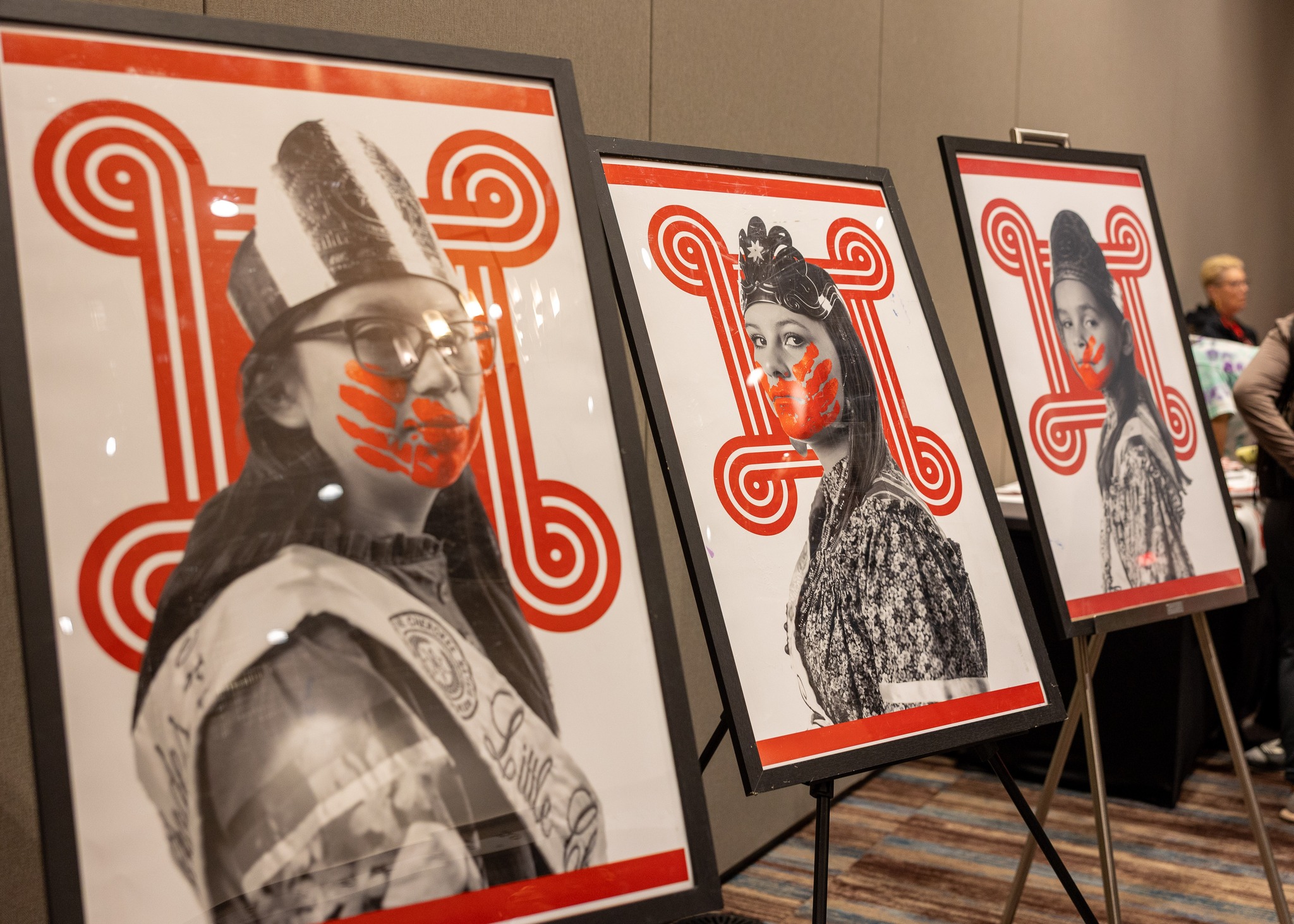
- Details
- By Chuck Hoskin Jr
Guest Opinion. Every May, the Cherokee Nation stands alongside tribes and advocates across the country in observing Missing and Murdered Indigenous Persons Awareness Month. Together, we highlight a crisis that continues to devastate tribal families and communities nationwide, and the Cherokee Nation is no exception. This year, as we mourn the lives lost and support the families left behind, we renew our commitment to justice for Native people.
The statistics are heartbreaking. According to the National Missing and Unidentified Persons System, 880 Native people are currently reported missing or murdered, while the Oklahoma State Bureau of Investigation (OSBI) lists approximately 90 Native people as missing in our state.
These numbers tell only part of the story. Behind each case is a unique individual and a family desperate for answers. Victims like Cherokee Nation citizen Aubrey Dameron, who went missing in 2019 and was tragically confirmed recovered this year, remind us of the painful road to justice and the urgency to act now.

Cherokee Nation is working tirelessly to address this crisis at every level. We have significantly expanded our Marshal Service, which now includes nearly 100 cross-deputization agreements. Recognizing the gravity of MMIP cases, we have dedicated two full-time officers to focus exclusively on these investigations. Our efforts are bolstered by cross-deputization partnerships with the OSBI, FBI, and other tribal law enforcement agencies. No matter which agency they work for, law enforcement know the importance of collaborating to address this epidemic of violence.
While in Washington, D.C., this week as part of the Department of the Interior Secretary’s Tribal Advisory Committee, I joined other tribal leaders in a meeting with Secretary Doug Burgum and FBI Director Kash Patel. We raised concerns about a federal proposal to cut $107 million from public safety and justice programs, a move that would set back MMIP investigations and harm tribal law enforcement efforts nationwide.
Closer to home, Cherokee Nation advocated for Oklahoma House Bill 1137 this legislative session. This simple, yet critical, amendment to Ida’s Law would secure funding stability for the MMIP liaison within OSBI. The bill passed with overwhelming bipartisan support in both the Oklahoma House of Representatives and Senate, only for Gov. Kevin Stitt to foolishly veto it. The governor’s action, for which he gave flimsy and shifting explanations, is another baffling bureaucratic setback in a fight we can’t afford to lose. Cherokee Nation has joined with our Inter-Tribal Council partners — the Chickasaw, Choctaw, Muscogee and Seminole Nations — in calling on the Legislature to overturn this veto.
We encourage citizens to contact their state House and Senate members and urge them to support a veto override vote on HB1137.
Law enforcement alone cannot address the spectrum of issues driving this crisis. That’s why we’ve elevated additional services to support survivors and their families. Through our ONE FIRE Victim Services program, we offer counseling, emergency shelter and crisis assistance.
The numbers speak volumes about the scale of the need. In 2024 alone, ONE FIRE helped more than 700 survivors, with almost 65% of the cases being Cherokee citizens. And in just the first few months of 2025, we’ve already served over 200 survivors.
Cherokee Nation is also investing in long-term solutions to enhance access to justice and reinforce our sovereignty. A $60 million commitment from our tribal trust settlement with the federal government will help fund the construction of a new Criminal Justice Center in Tahlequah and a secondary courthouse within our 7,000-square-mile reservation. These facilities will be essential as we continue to implement the McGirt ruling, which reaffirmed our jurisdiction over criminal matters on Cherokee land.
Since the Supreme Court’s landmark decision, we’ve made unprecedented investments in staff, infrastructure, and services to build safer Cherokee communities. These improvements are not just about responding to immediate emergencies, but about establishing the policing and legal protocols to protect future generations of Cherokees.
As we remember the lives taken and the families seeking closure, we recommit ourselves to the promise of ending the cycle of violence. At Cherokee Nation, we believe everyone deserves to live free from fear. Together, we will keep championing safety and accountability. Every child, every woman, and every citizen of our tribe should know that their nation will fight for them, protect them, and honor their lives.
Chuck Hoskin, Jr. is the principal chief of the Cherokee Nation.
More Stories Like This
Superhuman. Should We Be Better Than We Are?Senator Ben Nighthorse Campbell Proved Representation Matters
The Lie We Keep Telling About Wounded Knee
Another Weapon of Mass Destruction
Colorado cannot heal until it confronts Sand Creek honestly
Help us defend tribal sovereignty.
At Native News Online, our mission is rooted in telling the stories that strengthen sovereignty and uplift Indigenous voices — not just at year’s end, but every single day.
Because of your generosity last year, we were able to keep our reporters on the ground in tribal communities, at national gatherings and in the halls of Congress — covering the issues that matter most to Indian Country: sovereignty, culture, education, health and economic opportunity.
That support sustained us through a tough year in 2025. Now, as we look to the year ahead, we need your help right now to ensure warrior journalism remains strong — reporting that defends tribal sovereignty, amplifies Native truth, and holds power accountable.
 The stakes couldn't be higher. Your support keeps Native voices heard, Native stories told and Native sovereignty defended.
The stakes couldn't be higher. Your support keeps Native voices heard, Native stories told and Native sovereignty defended.
Stand with Warrior Journalism today.
Levi Rickert (Potawatomi), Editor & Publisher

